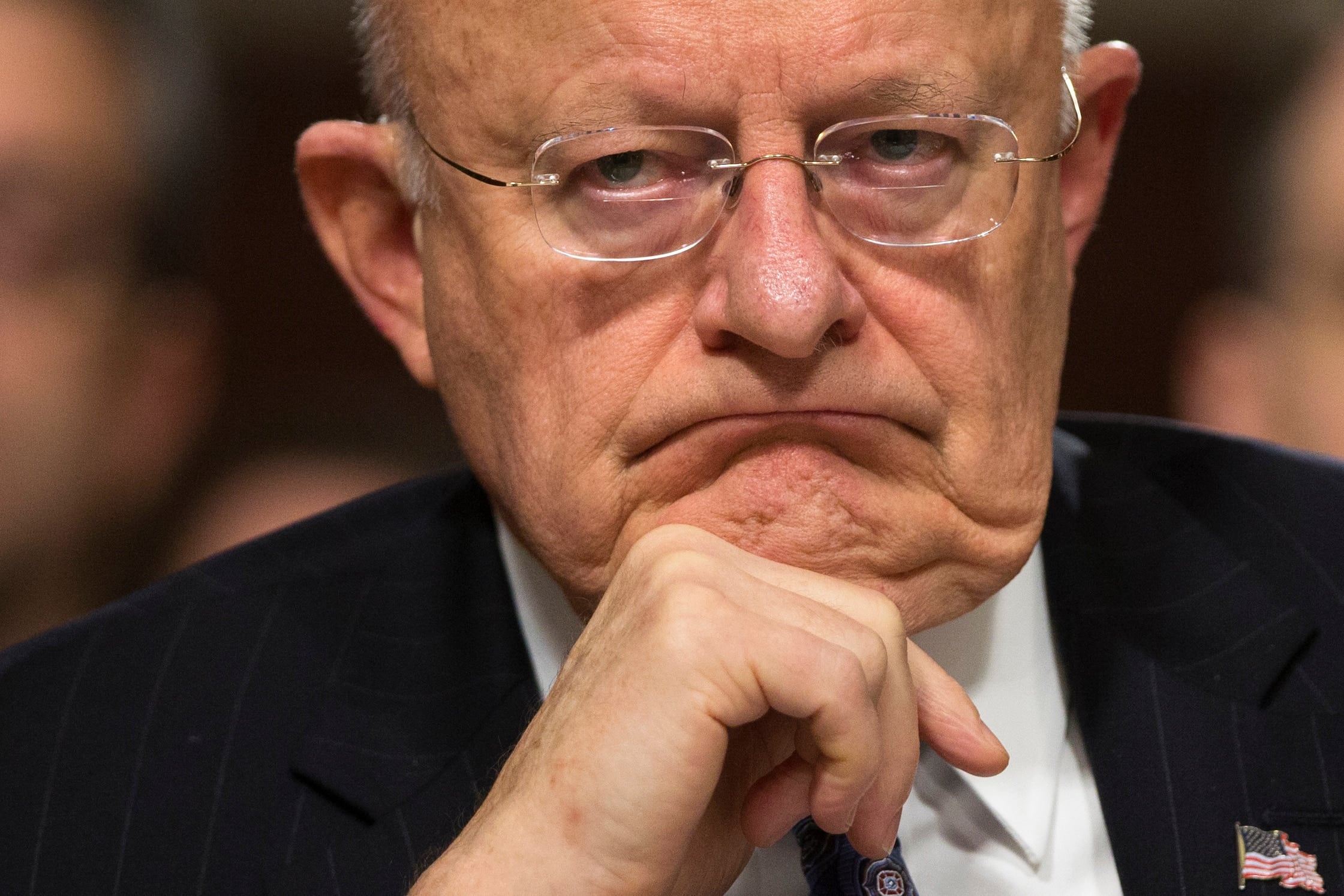WASHINGTON — Director of National Intelligence James Clapper said Thursday that Russia curtailed its election-related cyberactivity after the Obama administration accused Moscow of trying to interfere with the presidential race. The top U.S. intelligence official also said he had formally submitted a resignation letter effective at the end of President Barack Obama's term.
In one of his last appearances on Capitol Hill, Clapper also defended the administration's response to allegations that intelligence officials at the U.S. Central Command pressured analysts to discard information that reflected poorly on the war effort in Iraq and Syria. That command oversees U.S. military operations in the Middle East.
Hacked emails from Democratic Party officials were released by the anti-secrecy group WikiLeaks during the presidential campaign, revealing details embarrassing to Democrat Hillary Clinton's campaign. Clapper and the Department of Homeland Security said in October that based on the "scope and sensitivity" of the hacking efforts, only Russia's "senior-most officials" could have authorized the hacking. Russia has denied involvement.
Despite the curtailment following the U.S. accusations, Clapper predicted Russia will continue to engage in information warfare.
"The Russians have a very active and aggressive capability to conduct information operations," Clapper said the House Intelligence Committee. "That has been a long standing practice of theirs going back to the Soviet era. I expect that would continue."
Clapper said intelligence agencies have less insight into how WikiLeaks obtained the emails.

FILE - In this Feb. 9, 2016, file photo, Director of National Intelligence James Clapper listens on Capitol Hill in Washington. Clapper has resigned as DNI director.
Photo Credit: Evan Vucci/AP
The committee chairman, Rep. Devin Nunes, R-Calif., took Clapper, along with two defense officials who testified, to task about allegations that Central Command massaged intelligence reports to make it appear the U.S. was doing better than it was in Iraq and Syria.
The committee had raised the issue earlier this year. Nunes said lawmakers have not seen any "meaningful correction actions" taken by defense or intelligence officials.
Clapper noted that a recent survey of intelligence employees has shown increases in the percentage of employees who think their reports have been satisfactorily handled. "This is a one-year period, but it does show a positive trend," Clapper said.
On his retirement plans, Clapper said it "felt pretty good" submitting his formal letter of resignation Wednesday. Committee members jokingly asked him to stay on for perhaps four more years.
"I got 64 days left and I think I'd have a hard time with my wife anything past that," Clapper joked.
All top administration officials sign resignation letters before they depart on Jan. 20. Clapper said his resignation letter is effective as of noon on Inauguration Day.
Clapper has been director of national intelligence since August 2010. A lieutenant general in the Air Force, Clapper has held multiple intelligence positions since the 1960s, including director of the Defense Intelligence Agency.
His tenure has been lauded by both Democrats and Republicans.
California Rep. Adam Schiff, the top Democrat on the committee, said Clapper has "always exhibited sober judgment and put the fate of the nation first."
Sen. Richard Burr, R-N.C., the chairman of the Senate Intelligence Committee,, said in a statement that Clapper had reinforced U.S. intelligence relationships with allies and had successfully managed the U.S. intelligence apparatus. "Those of us who know Jim know he has been looking forward to his retirement for some time, and we wish him all the best."




